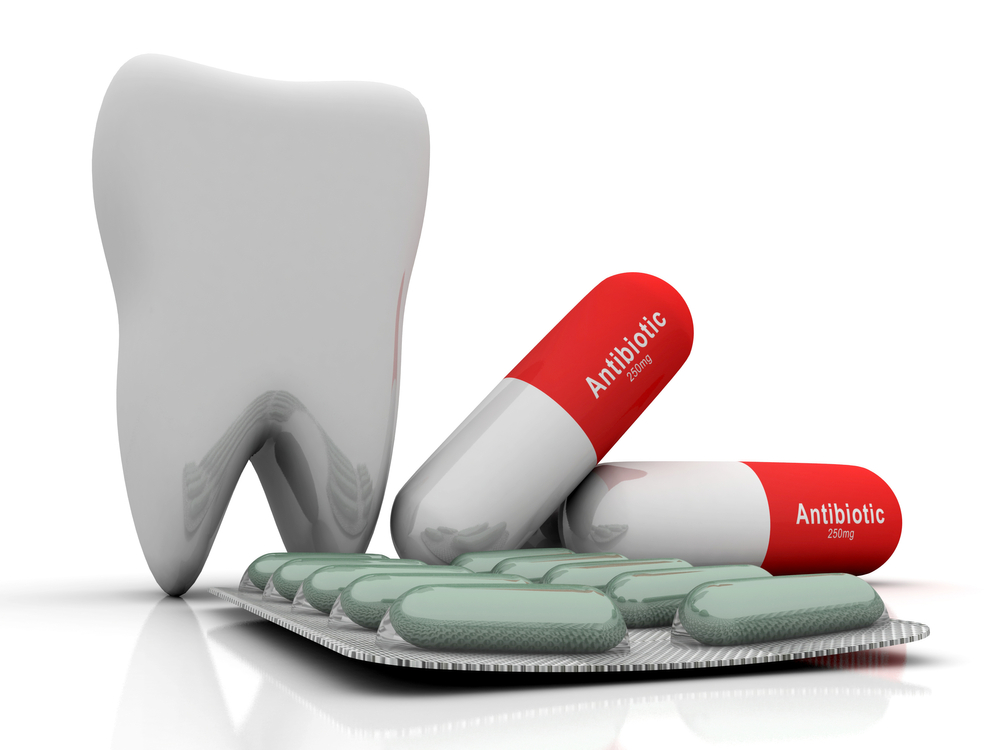How do Antibiotics Work in Treating Tooth Infections?
When the persistent throb of a toothache sets in, signaling the presence of an infection, antibiotics often emerge as a key player in the arsenal of dental treatments. In this comprehensive guide, we will explore the intricate workings of antibiotics in treating tooth infections, shedding light on their mechanisms, considerations, and the crucial role of finding the right dentist office near me for effective and timely intervention.
Understanding Tooth Infections
To comprehend the role of antibiotics, it's essential to grasp the nature of tooth infections. These infections typically arise from untreated cavities, dental trauma, or gum disease, allowing bacteria to infiltrate the tooth pulp. As the infection progresses, it can lead to throbbing pain, swelling, and even the formation of dental abscesses.

When Antibiotics Come into Play
While antibiotics play a crucial role in combating bacterial infections, their use in dentistry is specific to certain situations. Antibiotics are commonly prescribed when:
- Signs of Systemic Infection are Present: If the tooth infection has spread beyond the local area, causing systemic symptoms like fever, antibiotics may be prescribed to address the broader infection.
- Preventing Spread of Infection: Antibiotics are prescribed to prevent the spread of infection to surrounding tissues or other parts of the body. This is crucial for containing the infection and avoiding potentially serious complications.
- In Conjunction with Dental Procedures: In some cases, dentists may prescribe antibiotics in conjunction with dental procedures such as root canal therapy or tooth extraction to ensure that any residual bacteria are effectively eliminated.
How Antibiotics Work in Tooth Infections
Understanding the mechanisms of antibiotics provides insight into how they combat bacterial infections in the context of tooth-related issues.
- Targeting Bacterial Cell Walls: Many antibiotics work by targeting the cell walls of bacteria, disrupting their structural integrity. This prevents the bacteria from maintaining their shape and ultimately leads to their death.
- Inhibiting Protein Synthesis: Other antibiotics interfere with the process of protein synthesis in bacteria, a vital function for their survival. By inhibiting this process, antibiotics hinder the bacteria's ability to grow and reproduce.
- Disrupting Bacterial DNA: Certain antibiotics disrupt bacterial DNA, preventing the replication of genetic material. This impedes the bacteria's ability to multiply, facilitating the immune system's efforts to eliminate the infection.
Types of Antibiotics Used for Tooth Infections
Several antibiotics are commonly prescribed for tooth infections, each with its own spectrum of activity and considerations. The choice of antibiotic depends on factors such as the type of bacteria causing the infection, the patient's medical history, and any known allergies.
- Penicillin and Amoxicillin: Penicillin and its derivative, amoxicillin, are frequently used for treating dental infections. They are effective against a broad range of bacteria and are often the first choice for many dentists.
- Clindamycin: Clindamycin is an alternative for individuals allergic to penicillin. It is effective against a variety of bacteria and is often prescribed when penicillin is not a suitable option.
- Metronidazole: Metronidazole is commonly used in combination with other antibiotics for infections involving anaerobic bacteria. It is particularly effective against bacteria associated with dental abscesses.
- Azithromycin: Azithromycin, a member of the macrolide class of antibiotics, is sometimes prescribed for individuals who cannot tolerate penicillin or amoxicillin. It is effective against a range of bacteria.

Considerations and Precautions
While antibiotics can be instrumental in treating tooth infections, their use is not without considerations. Dentists carefully evaluate various factors before prescribing antibiotics, including:
- Allergies and Sensitivities: A patient's known allergies and sensitivities play a crucial role in antibiotic selection. Dentists aim to choose an antibiotic that is both effective and well-tolerated by the individual.
- Bacterial Resistance: The rise of antibiotic-resistant bacteria is a global concern. Dentists strive to prescribe antibiotics judiciously to minimize the risk of bacterial resistance.
- Full Course Completion: Patients are advised to complete the entire course of antibiotics as prescribed by their dentist. This ensures that all bacteria are eradicated, reducing the risk of recurrence or the development of antibiotic-resistant strains.
The Importance of Dental Consultation
Finding the right dentist office near you is paramount when dealing with tooth infections. A qualified dentist plays a pivotal role in assessing the severity of the infection, identifying the causative bacteria, and prescribing the most appropriate antibiotics. Additionally, dental professionals can determine if other interventions, such as drainage or dental procedures, are necessary for comprehensive treatment.
- Professional Diagnosis: Dentists use their expertise to diagnose the nature and extent of the tooth infection. This involves a thorough examination, often including dental X-rays to visualize the affected area.
- Individualized Treatment Plans: A dentist's ability to create an individualized treatment plan is crucial for successful outcomes. This may involve a combination of antibiotics, dental procedures, and post-treatment care to ensure the infection is fully addressed.
- Timely Intervention: Timely intervention is key in managing tooth infections. Seeking a dentist office near you allows for prompt assessment and treatment, reducing the risk of complications and promoting faster recovery.
- Follow-Up Care: Dentists provide essential follow-up care to monitor the progress of the treatment, address any concerns, and ensure that the infection has been effectively eradicated.
The Role of Preventive Dentistry
While antibiotics play a vital role in treating tooth infections, preventive dentistry remains the cornerstone of oral health. Regular dental check-ups, proper oral hygiene practices, and timely interventions for dental issues can reduce the likelihood of infections and the need for extensive antibiotic use.
- Routine Dental Check-Ups: Regular dental check-ups allow dentists to identify and address dental issues before they escalate into infections. Early intervention can often prevent the need for antibiotics.
- Effective Oral Hygiene Practices: Maintaining good oral hygiene through regular brushing, flossing, and the use of antimicrobial mouthwashes can help prevent the development of cavities and gum disease, reducing the risk of infections.
- Education on Dental Care: Dentists play a crucial role in educating patients about proper oral care practices, including dietary choices that support dental health and lifestyle habits that can contribute to overall well-being.
Conclusion:
In the realm of dental care, antibiotics for tooth infections serve as powerful allies in the battle against bacterial invaders. Understanding their mechanisms, the types commonly used, and the considerations involved provides individuals with valuable insights into their role in oral health. Equally important is the recognition of the central role dentists play in prescribing antibiotics judiciously, creating individualized treatment plans, and fostering overall oral well-being. As you embark on the journey of finding the right dentist office near you, remember that timely intervention and comprehensive care are the pillars of a healthy and vibrant smile.
Comments
Post a Comment